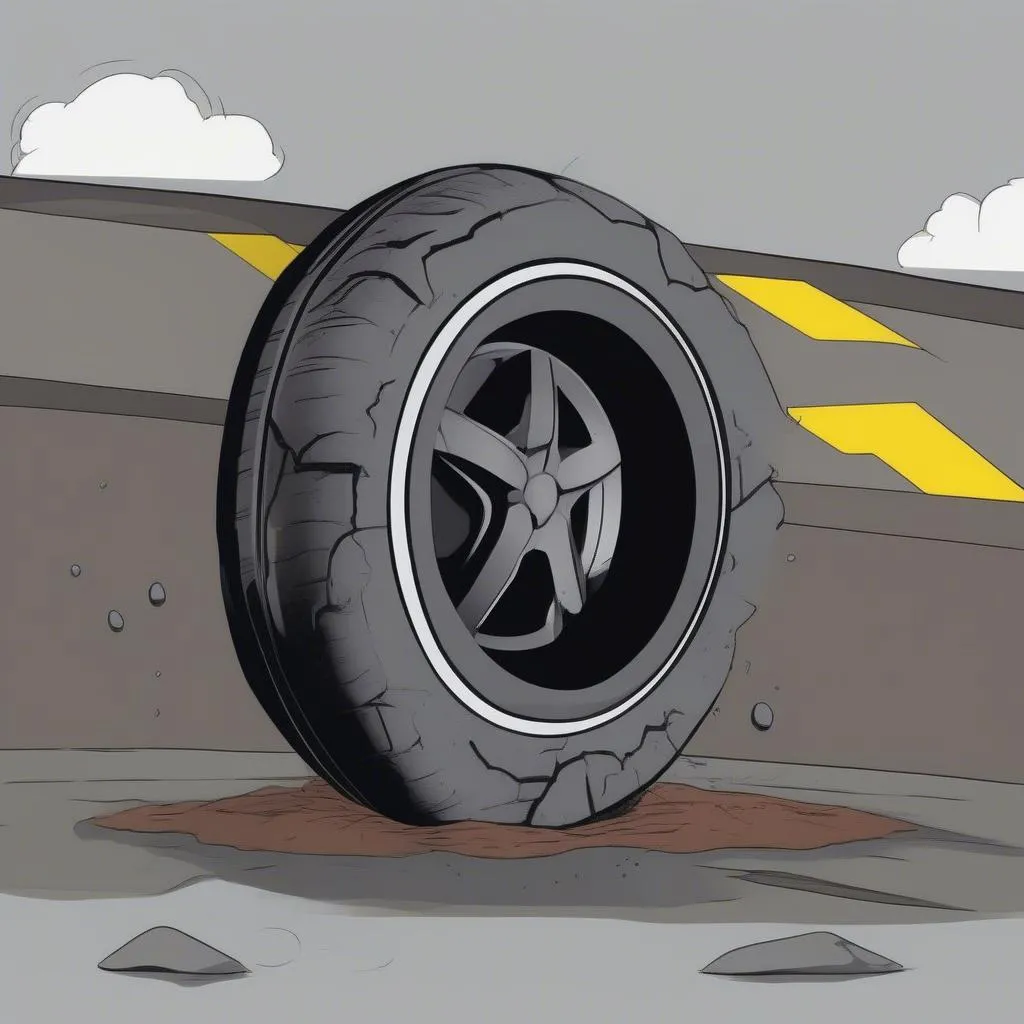Have you ever been cruising down the highway, the open road beckoning you forward, only to have your car start shaking like a nervous chihuahua at a dog park once you hit 50 mph? It’s not just an annoyance, it’s a clear sign something needs attention. But don’t worry, figuring out why your car shakes at higher speeds isn’t rocket science! Let’s dive into the common culprits and how to smooth out your ride.
What Does “Car Shaking When Going Over 50” Really Mean?
Before we start throwing around car parts like confetti, let’s understand what this shaking is telling us.
- From a mechanic’s perspective: It’s a red flag! Vibrations mean something is off-kilter and impacting your car’s performance. It could be a minor fix or signal a bigger issue.
- In technical terms: Your car vibrates at specific frequencies. When something disrupts that harmony – like an unbalanced tire – the vibration amplifies at certain speeds, usually noticeable above 50 mph.
- Think of it like this: Imagine riding a bike with a wobbly wheel. The faster you go, the wilder the wobble!
So, Why Does My Car Shake When I Go Over 50?
There are several reasons why your car might turn into a shimmying mess at higher speeds. Let’s break down the usual suspects:
1. Tire Troubles
This is public enemy number one!
- Unbalanced tires: Just like that wobbly bike wheel, an unbalanced tire can cause vibrations, especially at higher speeds. Think of it as having too much weight on one side of the tire, making it spin unevenly.
- Misaligned wheels: If your wheels aren’t pointing in the same direction, it can lead to uneven tire wear and that dreaded shaking. Ever tried walking in two directions at once? Your car doesn’t like it either.
- Damaged tires: Bulges, bubbles, or uneven wear on your tires can also cause shaking. These imperfections throw off the balance and smooth rotation.
Think about it: You wouldn’t ignore a flat tire, would you? Treating your tires right is essential for a smooth and safe ride!
2. Suspension System Struggles
Your car’s suspension system is like its shock absorbers, keeping things stable. If it’s struggling, you’ll feel it!
- Worn-out shocks or struts: Over time, these components wear out, reducing their ability to dampen bumps and vibrations. This can lead to a bouncy ride and shaking at higher speeds.
- Damaged suspension components: Potholes, rough roads, and even normal wear and tear can damage control arms, ball joints, and other suspension parts, leading to vibrations.
Expert Insight: “A well-maintained suspension system is crucial for a comfortable and safe driving experience,” says automotive expert Dr. Thomas Wagner, author of “The Complete Guide to Automotive Suspension Systems.”
3. Other Potential Culprits
While tires and suspension issues are the most common culprits, other factors can also cause your car to shake at speed:
- Brake problems: A warped brake rotor can cause vibrations, especially when braking at higher speeds.
- Engine issues: In some cases, a misfiring engine or a problem with the drivetrain can cause vibrations that worsen at higher speeds.
What to Do About a Shaky Car
Don’t panic! Here’s a game plan:
- Safety First: If the shaking is severe or accompanied by other symptoms like pulling to one side, stop driving immediately and call for a tow to avoid potential accidents.
- Start with the Tires: Have a mechanic inspect your tires for balance, alignment, and any signs of damage. This is often the quickest and easiest fix.
- Check Your Suspension: Ask your mechanic to inspect your suspension system for any wear and tear or damage.
- Don’t Ignore Other Signs: If you experience vibrations when braking or other unusual symptoms, let your mechanic know.
FAQs: Your Shaky Car Questions, Answered!
Q: My car only shakes when I hit 60 mph. Is that still a tire issue?
A: Quite possibly! Different issues manifest at different speeds. It’s always best to get it checked out.
Q: I hit a huge pothole. Could that make my car shake?
A: Absolutely! Potholes can knock your alignment out of whack or even damage suspension components.
Q: How often should I get my tires balanced and rotated?
A: Every 5,000-7,000 miles is a good rule of thumb, but check your owner’s manual for specific recommendations.
 Damaged Tire
Damaged Tire
Need More Help? We’re Here for You!
Experiencing car trouble can be stressful. If you need help diagnosing car problems or want expert advice on repairs, don’t hesitate to reach out to us on Whatsapp: +84767531508. Our team of automotive specialists is available 24/7 to assist you with any car-related issues!
Remember: Addressing car problems promptly keeps you safe and saves you money on potentially bigger repairs down the road!